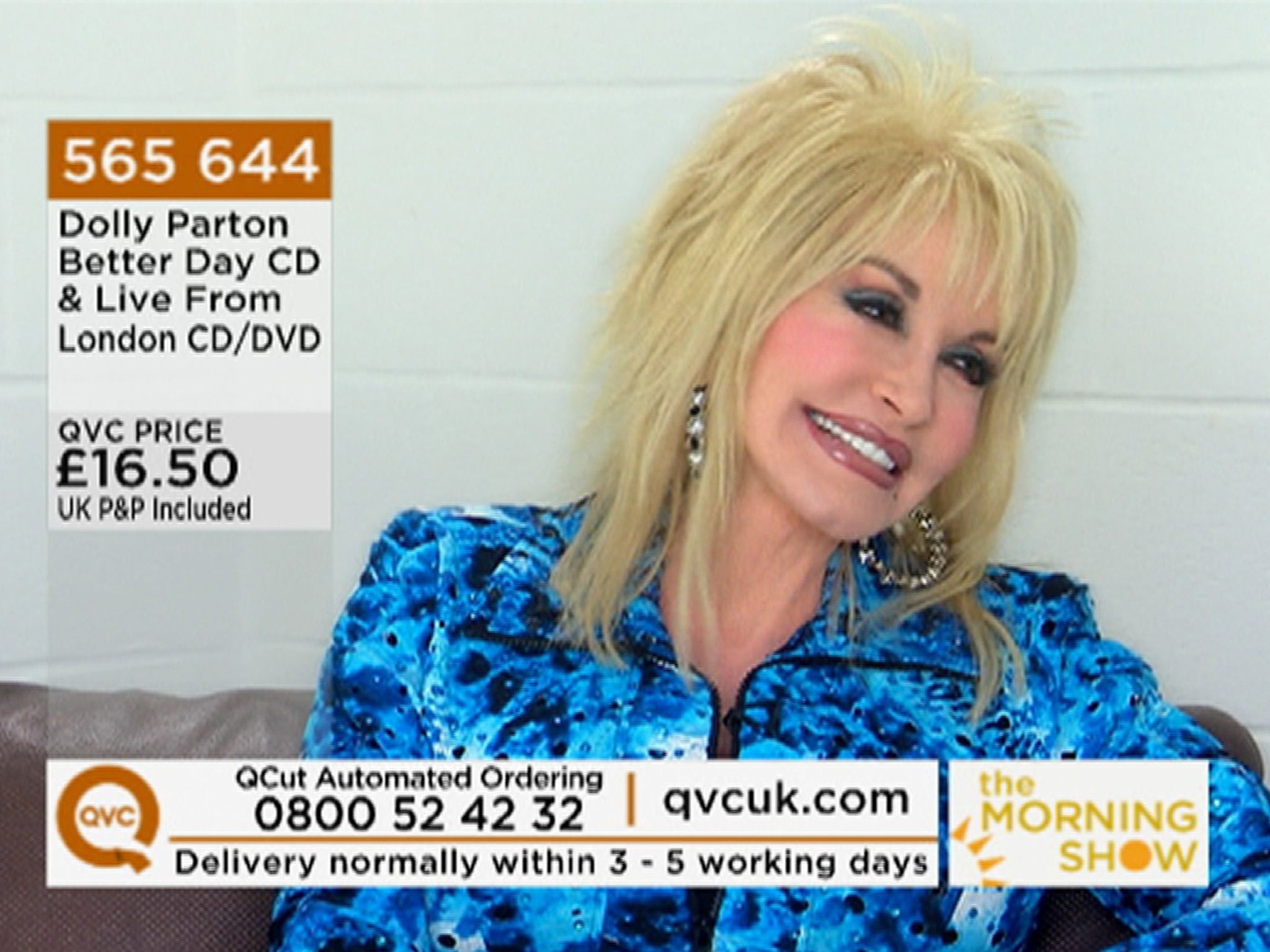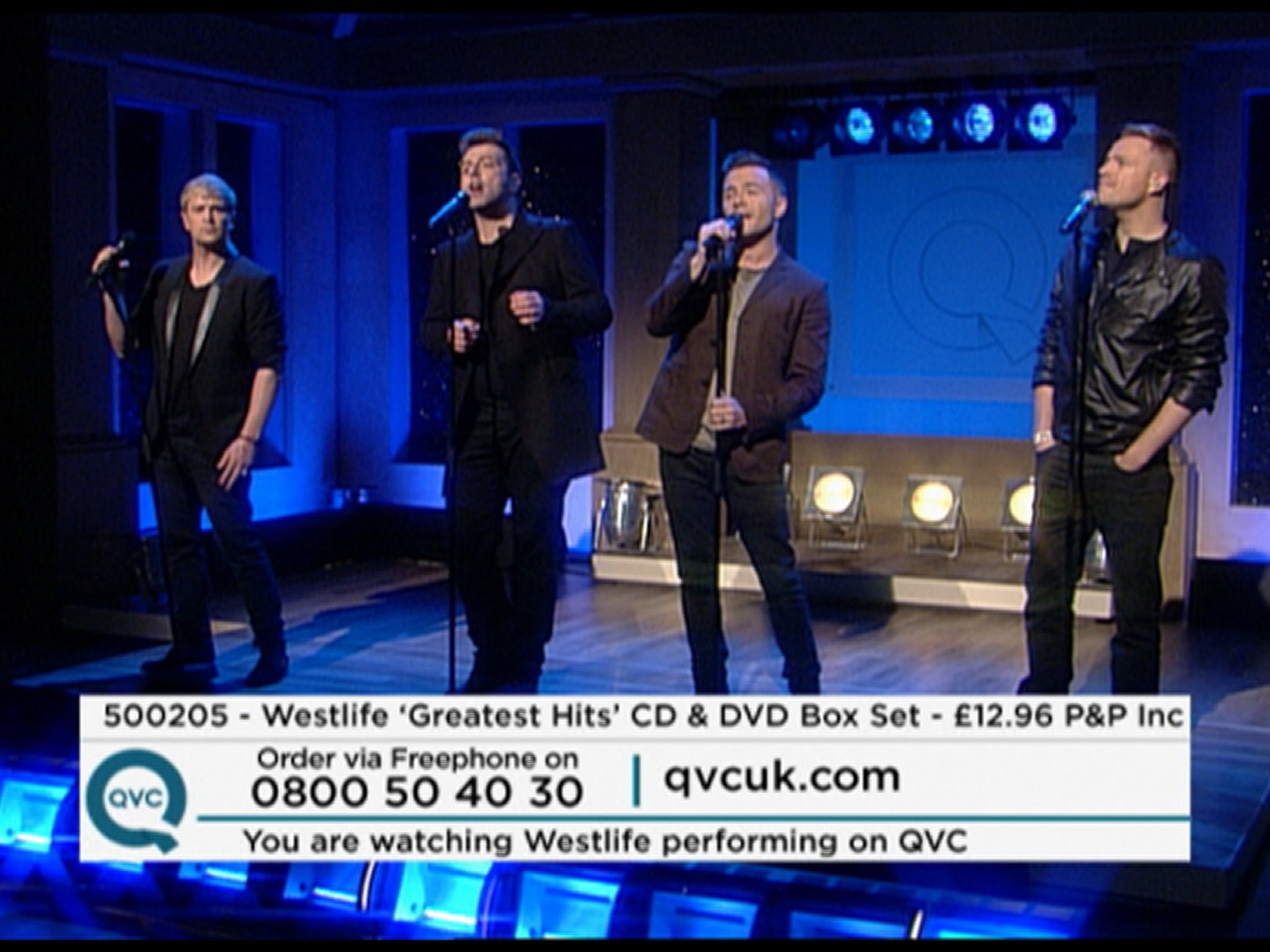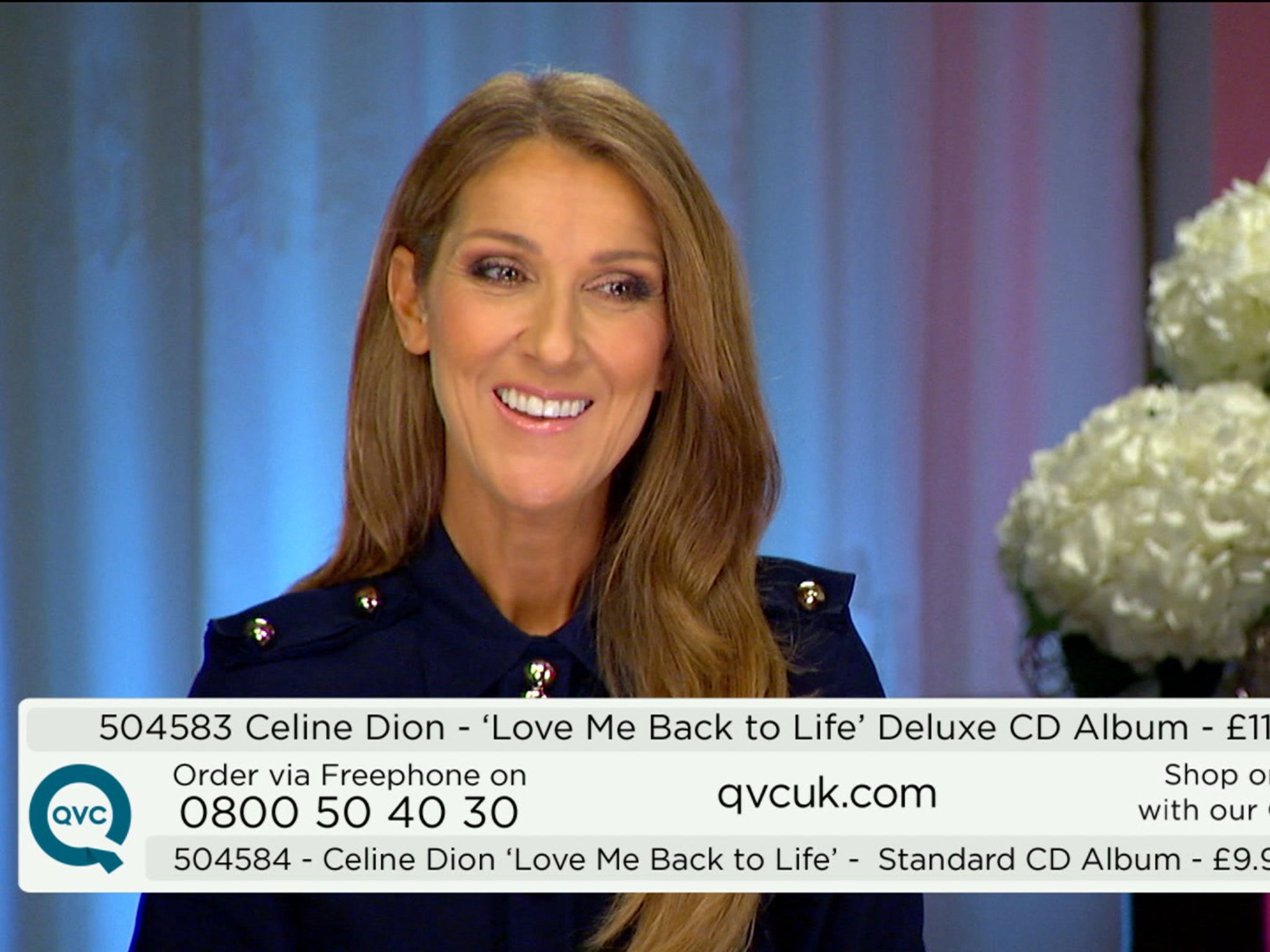Why music stars like Dolly Parton, Westlife and Lulu are appearing on shopping channel QVC
Stars past and present are seeing the worth of selling their albums via the shopping channel. We see how they do it

Your support helps us to tell the story
From reproductive rights to climate change to Big Tech, The Independent is on the ground when the story is developing. Whether it's investigating the financials of Elon Musk's pro-Trump PAC or producing our latest documentary, 'The A Word', which shines a light on the American women fighting for reproductive rights, we know how important it is to parse out the facts from the messaging.
At such a critical moment in US history, we need reporters on the ground. Your donation allows us to keep sending journalists to speak to both sides of the story.
The Independent is trusted by Americans across the entire political spectrum. And unlike many other quality news outlets, we choose not to lock Americans out of our reporting and analysis with paywalls. We believe quality journalism should be available to everyone, paid for by those who can afford it.
Your support makes all the difference.On the fourth floor of shopping channel QVC's imposing west London headquarters, in a studio just beyond a warehouse-sized hall filled with myriad blouses, dresses, handbags and shoes, sits the eternal pop star Lulu.
She is perched on a plump armchair and, in the seconds before the cameras start rolling, is having make-up applied not only to her face but also her arms and hands, thus affording her the all-over glow of someone who has just come in from the beach.
"Ooh, I do feel at home here!" she coos, her giggle so infectious that the show's smiling host, Craig Rowe, can but giggle too. She is here today because she has a new album out, Making Life Rhyme, and she wants to sell as many copies of it as she can to anyone that happens to be tuning in. She will likely find many willing customers, not only because the QVC demographic is, roughly speaking, not that dissimilar to Lulu's – women over the age of 35 – but because she is a regular face on the channel, selling a skincare range called Timebomb, tagline "The clock stops here".
No mention of Timebomb today, however. Time is money on QVC, and screen time is precious. Unless you are Apple or Dyson, whose products shift in such profitable quantities they can command an hour at a time, you end up sandwiched between other products in an endless conveyor belt of purchasable… stuff.

Lulu, still big news at 66, warrants a full 15 minutes, shortly after a two-minute item about potted plants. While she chats with professional amiability about the album and its inspiration, Craig Rowe holds up the CD case in a practised hand and slowly rotates it for the benefit of the camera zooming in for a close-up.
A freephone number scrolls along the bottom of the screen, encouraging viewers to call in and purchase a copy for the competitive price of £10.50, delivery within three to five working days, 30-day, money-back guarantee. The questions Rowe poses are hardly the stuff of Paxman, but then this isn't Newsnight. It is, in the words of Tom Lewis, director of A&R and artist strategy at Decca Records, Lulu's label, "the equivalent of an old in-store appearance where an artist gets to interact directly with their fans."
The channel has, Lewis suggests, become an increasingly powerful marketing tool. "We exist in an era of media fragmentation, and there are far fewer shops on the high street. Consequently, the opportunity to get your artist in front of their target audience becomes harder and harder. That's why we love QVC. It's invaluable because, for an artist like Lulu, it can work so very well."
Lewis is right. Lulu's appearance helps the album sell several hundred copies and enter the charts at number 35 a week later, which should keep Decca happy enough and, presumably, Lulu in a job.

QVC UK celebrates its 22nd anniversary this year. The leading TV shopping channel by some considerable margin, it originated in 1986 in, perhaps inevitably, America, the country that has always striven for a world of sedentary convenience. Why go out to shop when the shops can come to you?
Enjoy unlimited access to 100 million ad-free songs and podcasts with Amazon Music
Sign up now for a 30-day free trial
Enjoy unlimited access to 100 million ad-free songs and podcasts with Amazon Music
Sign up now for a 30-day free trial
It became so successful so quickly that it soon extended its reach around the world. It now also broadcasts in Japan, Germany, Italy and France, reaching millions of households a day. Teflon-like, it has proved itself both internet-proof and recession-busting. It is as much an online presence these days as it is a televisual one, and on a good day its skincare ranges can shift more than £1m-worth of products. Its main warehouse, near Liverpool, is the size of six football pitches.
The biggest sellers remain fashion, jewellery and beauty products but in 2010 QVC US decided to introduce music to the mix. Rather than merely getting its presenters to plug the weekly Top 10 in the same way they would, say, garden shears or a handsome range of copper-bottomed saucepans, they decided it would work better – for the viewer, at least – if the artist came in to talk about their new releases within the comfort of a chat show format.
It worked. Dolly Parton, Celine Dion, Sheryl Crow and Jon Bon Jovi were all eager to appear, and to risk that most nebulous of artistic possessions – credibility – by marketing their albums themselves.

"Appearing on QVC shouldn't make any difference to anybody's reputation at all," argues David Hepworth, writer and broadcaster, and the man who launched Q and Mojo magazines. "It's simply artists trying to make a living, and there shouldn't be any shame in that."
QVC UK quickly followed suit, and plumped, first, for a perhaps unlikely act: John Barrowman, that tireless all-round entertainer and hammy singer who's terribly fond of show tunes.
"To be honest, we had no idea if it was a good thing or not," admits Caroline Cornabe, the station's senior co-ordinating producer. "But his album, with thousands of takers, sold out within five minutes. There were queues on the phone, people wanting to interact with him via email. It was amazing, and John was so chatty, so engaging. The viewers loved him."
Charlotte Church followed in Barrowman's wake, and was immediately accused in some quarters – specifically, the Daily Mail's – of "flog[ging]" her new album to "bargain hunters". Westlife came next, then Jamie Cullum and Beverley Knight, middle-of-the-roaders all, but many of whose fans had television sets, the QVC channel, and ready access to their credit cards.
"Why not try to sell your album as effectively as possible?" asks Hepworth. "It's just one of those things that an artist can do nowadays, and should do, especially as buying a record is not something most people wake up on a Saturday morning automatically thinking they are going to do any more. This reminds them to do it, and that's a good thing. I'm sure if Morrissey did QVC, his fans would love it."
Credibility does remain the chief sticking point here, it seems. It's awkward having to plug your own work quite so bluntly – at least on Graham Norton you can indulge in the conceit of witty banter in order to raise profile and shift units. Many more credible acts can surely count QVC viewers among their fanbase but it's unlikely Arctic Monkeys will appear anytime soon. And even if they did, the channel might not be able to accommodate them.
It is difficult to make room for music when other household items prove so much more popular. Those who have appeared – among them Susan Boyle, Donny Osmond, Gabrielle, Mel C and Rumer – tend to congregate around certain times of the year. "Mother's Day is a particularly good time," says Cornabe. "But later in the year, autumn and winter, we're simply too busy."
Back in the studio, Lulu has just finished singing and affects a cutesy curtsy. The presenter flashes a bleached-bright smile. "So great to see Lulu back in her oeuvre," he says, before flagging up the next item, an overnight summer skin recovery mask, priced at £29.64, including p&p. They've sold 6,000 of these in the last month alone. The phone lines light up like Christmas.
Join our commenting forum
Join thought-provoking conversations, follow other Independent readers and see their replies
Comments